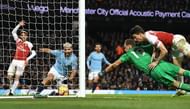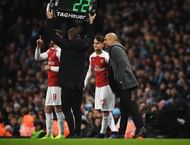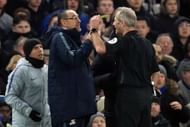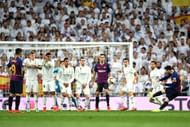The International Football Association Board (IFAB), established in 1886, represent the administrative body which deals the laws and regulations associated with the game.
Despite IFAB represent an autonomous association from FIFA, there is however FIFA representation on the board and it reserves 50% of the voting power. FIFA strictly adheres to IFAB's laws while organizing any football match in the world. The venue for IFAB's 133rd Annual General Meeting (AGM) was in Marcliffe Hotel, Aberdeen on 2nd March 2019.
One of the most heated debates in football is in fact regarding the handball rules, and this issue was addressed at length during the Annual General Meeting (AGM), with a charter being handed on the urgency for a more accurate and comprehensive approach taken to curb different types of handball offences.
The meeting was completed successfully with an update on the ongoing global usage of the Video Assistant Referees (VARs), where FIFA summarized the amount of success they've gained for the use of VARs at the 2018 FIFA World Cup, Russia. There were furthermore plans for a comprehensive digitization scheme to support FIFA and The IFAB in the method of educating refereeing laws throughout the football fraternity. Apart from The play fair! initiative, a part of IFAB, the meeting also acknowledged to explore other alternatives in which the laws could be implemented to correct on-field conduct.
FIFA President Gianni Infantino said,
“Women are nicer than men, probably, generally. Sometimes we men feel that we need to show how strong we are, probably in the human nature, and this is reflected as well in some of the behavior in society in general but also on the football pitch. When it comes to behavior, if there’s something to learn from the women’s game ... it’s certainly this: This is much less time lost and wasted on simulations or on other situations we criticize in the men’s game. We are intervening now.”
Infantino’s appreciation for the admirable conduct of female players is in contrast to predecessor Sepp Blatter, who exhorted the female players to wear snug and tighter kits to make the game more popular.
Here are the four major changes that we get to see.
#1 Hand Ball goals will not be counted

The Sergio Aguero goal against Arsenal won't count if this rule is implemented!
IFAB have made it clear that, regardless of the player's possible motive, goals that have made contact with a player's arm, will NOT be tolerated. Even if there was any deliberate handball per say, the referees and the match officials have to judge the outcome in such a way that no unfair advantage shall be provided. Ergo, even if the handball wasn't intentional, the goal will be ruled out.
Premier League referee Dermot Gallagher made his personal views regarding this decision and stated,
“80 per cent of the handballs that referees give are not deliberate, but because a player gains a material advantage. Taking the word deliberate out will eradicate that.We will still have the problem of asking has he made himself bigger, has he put his arms in an unnatural position? There will still be the arm close to the body that will hit the arm and the referee will deny a penalty”
#2 Quicker Substitutions

The summer of 2019 will not witness things like necessary delay in substitutions - also one of the most popular time-wasting tactics. So conferring on to the new amendments made, a substituted player can instantly leave from the pitch off the nearest point/boundary, thus reducing the time taken in each substitution. The players no longer have to walk leisurely till the technical area and can promptly leave the pitch at the halfway line.
The typical practice among all the teams is to substitute players in the very dying minutes of the game. One of the most frustrating sights is that, a team, which desperately tries to score a late equalizer is the one which suffers from this time-wasting tactic. The manager frequently selects the farthest player from the technical area, and this result in a long, slow walk down the pitch and even the top gaffers promptly pull up this trick!
#3 Gaffers shall also be on the receiving end of cards from the referee

To date, managers and coaches have only been penalized verbally for any immorality down the technical area. But this is going to change as well, as managers can equally receive yellow and red cards like the players do, depending upon the various degrees of offense or unethical behaviour that they may be responsible for.
This is not new, as the English Football League (EFL) embraced similar law last year, where the gaffers would typically receive a one-match ban if found any violation from their end.
Some of the possible things which could count as a card offense maybe - kicking a water bottle, lewd gestures, spitting, stopping the opponent, violent conduct. But as for now, the rule levies that only the match official traditionally holds the right to issue a card to a manager, not the assistants or the fourth official.
#4 No attacking players in the wall

Of late, attacking teams have progressively deployed their own players in free-kick walls formed by the defending team. This ingenious trick provides as a camouflage that'll eventually bewilder the defenders, while some other player could effortlessly sneak-in and will eke out a goal-scoring opportunity.
However, from the next season on, attacking players will not be expected to stand in the wall. The wall should be constructed of players from the defending team only. In addition, it has also been determined that the attacking players will have to stand at least one metre away from the wall, whilst the free-kick is being taken.
The IFAB, in minor addition with these laws, also stated that there won't be rebounds on penalties. But that preposterous notion was possibly abandoned from a previous meeting in November.
What's your take on these fascinating set of rule changes?
Do let us know in the comment section.
